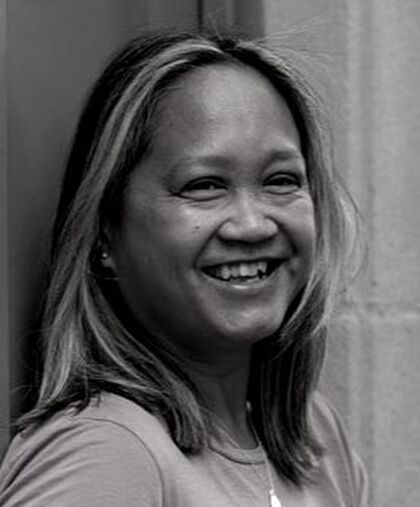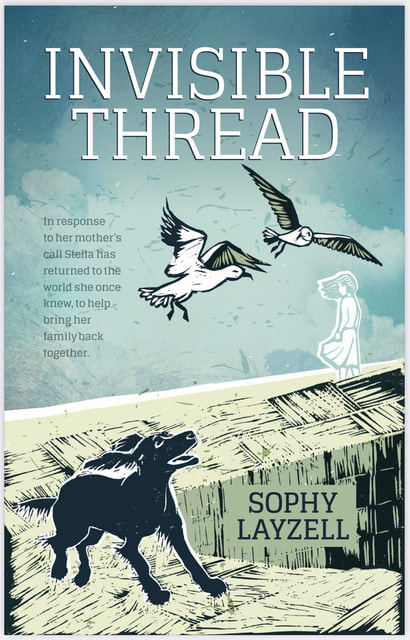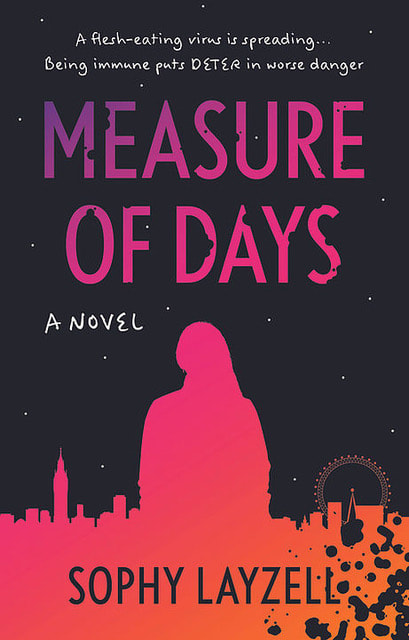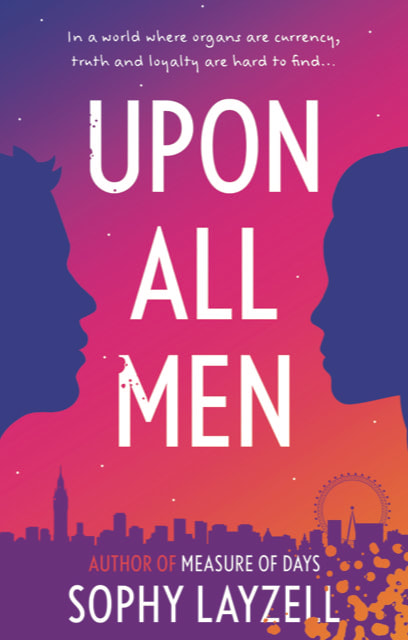
It gives me great pleasure to welcome Sophy Layzell onto the website today. Sophy has written three novels. But when her daughter Jemima tragically died in 2012 aged 13, Sophy began to put Jemima's diary entries together to create a lasting momento of her life and also to ensure Jemima's ambition to become an author came true. The book sold internationally and it was agreed that the money should be used to start a charitable trust in Jemima's name. Today Sophy spends a great deal of time running the Jemima Layzell Trust, which helps children with brain injury as well as promoting awareness for organ transplants.
Photography: Tina Downham
Alex: Tell me a bit about yourself, Sophy.
Sophy: When I was a tiny baby I was adopted (from Laos) by the Denny family. They are a noble and artistic family so I went from a life of poverty to one of immense privilege. The arts have always been a primary concern but writing is still a fairly new discipline for me.
I was brought up in Gloucestershire and then moved to Somerset after my marriage to Harvey, whose family building conservation firm celebrated their 125th year during lockdown!
Sophy: When I was a tiny baby I was adopted (from Laos) by the Denny family. They are a noble and artistic family so I went from a life of poverty to one of immense privilege. The arts have always been a primary concern but writing is still a fairly new discipline for me.
I was brought up in Gloucestershire and then moved to Somerset after my marriage to Harvey, whose family building conservation firm celebrated their 125th year during lockdown!

Alex: How would you describe your writing, and are there particular themes that you like to explore?
Sophy: My writing is traditional in style, I’m no good at peppy witticisms, so although some of my books are for a YA market, they are not in the American conversational style that’s so popular.
I have the first in my YA trilogy, Measure of Days already out, with the next, Upon All Men due on the 28th March 2022. These are both published by the Book Guild and are sci-fi, dystopian adventures.
Then, in a completely different genre, my contemporary fiction novel Invisible Thread was self-published on the 25th September 2021.
I suppose the themes are similar, for I gravitate towards examining love, loyalty, and friendships in the face of different challenges; political tension, trauma, climate change, war and death.
Alex: Are you a writer that plans a detailed synopsis or do you set out with a vague idea and let the story unfold as you write?
Sophy: Both! Although too much planning inhibits my creativity and I go ‘off the boil’ so to speak! Usually, I like to let things unfold naturally and then tighten it all up at the end. My finished novels have gone through so many versions and it’s the ones that are still stuck at 30,000 words that I’ve over planned.
Sophy: My writing is traditional in style, I’m no good at peppy witticisms, so although some of my books are for a YA market, they are not in the American conversational style that’s so popular.
I have the first in my YA trilogy, Measure of Days already out, with the next, Upon All Men due on the 28th March 2022. These are both published by the Book Guild and are sci-fi, dystopian adventures.
Then, in a completely different genre, my contemporary fiction novel Invisible Thread was self-published on the 25th September 2021.
I suppose the themes are similar, for I gravitate towards examining love, loyalty, and friendships in the face of different challenges; political tension, trauma, climate change, war and death.
Alex: Are you a writer that plans a detailed synopsis or do you set out with a vague idea and let the story unfold as you write?
Sophy: Both! Although too much planning inhibits my creativity and I go ‘off the boil’ so to speak! Usually, I like to let things unfold naturally and then tighten it all up at the end. My finished novels have gone through so many versions and it’s the ones that are still stuck at 30,000 words that I’ve over planned.

Alex: Tell us about your latest novel.
Sophy: My latest novel is one I’ve self-published. I’ve just had a wonderful review arrive today, so I’ll quote from that as it explains Invisible Thread very succinctly.
‘It is in essence a story of surviving grief.
'If I were to say to you it is a sort of “Lovely Bones”, in many ways that would sell the book short. This is a little more homespun but in being so, it becomes more intimate, more personal and that is the gentle strength of Invisible Thread. Telling a story in which the key character is dead is a challenge. But Sophy Layzell handles it well. It is not kitsch, it is not overtly religious and it stays credible throughout.’ Langport Leveller Oct 2021
Alex: What was the first book you read?
Sophy: Oh, it was one of those Peter and Jane school books! I can actually remember reading it aloud to my mum back in the late 1970s. I also loved a very simple book called Ant and Bee and the ABC by Angela Banner.
Alex: How much research do you do and what does it usually entail?
Sophy: I try to write about what I know, but occasionally I need to look up facts… for instance my character Angus becomes involved in the communal kitchen gardens in Measure of Days, and I had to look up seasonal planting.
Sophy: My latest novel is one I’ve self-published. I’ve just had a wonderful review arrive today, so I’ll quote from that as it explains Invisible Thread very succinctly.
‘It is in essence a story of surviving grief.
'If I were to say to you it is a sort of “Lovely Bones”, in many ways that would sell the book short. This is a little more homespun but in being so, it becomes more intimate, more personal and that is the gentle strength of Invisible Thread. Telling a story in which the key character is dead is a challenge. But Sophy Layzell handles it well. It is not kitsch, it is not overtly religious and it stays credible throughout.’ Langport Leveller Oct 2021
Alex: What was the first book you read?
Sophy: Oh, it was one of those Peter and Jane school books! I can actually remember reading it aloud to my mum back in the late 1970s. I also loved a very simple book called Ant and Bee and the ABC by Angela Banner.
Alex: How much research do you do and what does it usually entail?
Sophy: I try to write about what I know, but occasionally I need to look up facts… for instance my character Angus becomes involved in the communal kitchen gardens in Measure of Days, and I had to look up seasonal planting.

Alex: Do you ever base your characters on people you have encountered in real life?
Sophy: My characters are hybrids, a bit of him and a bit of her with lashings of them! So, they might start as someone I know but they quickly become people in their own right. I also draw a great deal on my own experiences as I find that I am most authentic about feelings that way.
Alex: Which was the last book you read that blew you away?
Sophy: I’ve read quite a few this year but the big ones that I thought were going to stay with me fell flat, so I’m going to pick a lesser-known author, Louise Beech, because her novel This is How We Are Human is so unusual, with the most interesting premise and utterly gorgeous characters.
Alex: How do you market your books?
Sophy: Wherever I can and however I can! The local radio stations and press in my area have been very supportive but trying to reach a wider market is something I have to hope my publishers have success with for my trilogy.
For Invisible Thread I organised a blog tour which was worthwhile and various giveaways through bigger organisations. It’s very hard to find avenues that are free though, so I wish I had a larger advertising budget.
Alex: What are your interests aside from writing? And what do you do to unwind?
Sophy: I sit about a lot, wasting time on social media, and in the evenings, I watch films. If I’m tired, they are films I’ve already seen, so I don’t have to concentrate on the plot too much. When I’m full of energy I like to go to the theatre and at the weekends there’s nothing so invigorating as a walk along the beach at low tide.
Alex: Which authors do you particularly admire and why?
Sophy: I admire different authors for different things. I wish I had Jodi Piccoult’s ability for impeccable research, Khaled Hosseini’s empathy, Roald Dahl’s humour, John Green’s peppy teen dialogue and Madeline Miller’s lyricism.
Alex: Thank you so much for sharing your writing experience with us, Sophy. It's been lovely having you here. Your books sound wonderful. I wish you all the best with all your writing endeavours, and, of course, your wonderful work for the Jemima Layzell Trust, which I have to say, I find incredibly moving.
Sophy: Thank you Alex.
Sophy: My characters are hybrids, a bit of him and a bit of her with lashings of them! So, they might start as someone I know but they quickly become people in their own right. I also draw a great deal on my own experiences as I find that I am most authentic about feelings that way.
Alex: Which was the last book you read that blew you away?
Sophy: I’ve read quite a few this year but the big ones that I thought were going to stay with me fell flat, so I’m going to pick a lesser-known author, Louise Beech, because her novel This is How We Are Human is so unusual, with the most interesting premise and utterly gorgeous characters.
Alex: How do you market your books?
Sophy: Wherever I can and however I can! The local radio stations and press in my area have been very supportive but trying to reach a wider market is something I have to hope my publishers have success with for my trilogy.
For Invisible Thread I organised a blog tour which was worthwhile and various giveaways through bigger organisations. It’s very hard to find avenues that are free though, so I wish I had a larger advertising budget.
Alex: What are your interests aside from writing? And what do you do to unwind?
Sophy: I sit about a lot, wasting time on social media, and in the evenings, I watch films. If I’m tired, they are films I’ve already seen, so I don’t have to concentrate on the plot too much. When I’m full of energy I like to go to the theatre and at the weekends there’s nothing so invigorating as a walk along the beach at low tide.
Alex: Which authors do you particularly admire and why?
Sophy: I admire different authors for different things. I wish I had Jodi Piccoult’s ability for impeccable research, Khaled Hosseini’s empathy, Roald Dahl’s humour, John Green’s peppy teen dialogue and Madeline Miller’s lyricism.
Alex: Thank you so much for sharing your writing experience with us, Sophy. It's been lovely having you here. Your books sound wonderful. I wish you all the best with all your writing endeavours, and, of course, your wonderful work for the Jemima Layzell Trust, which I have to say, I find incredibly moving.
Sophy: Thank you Alex.
